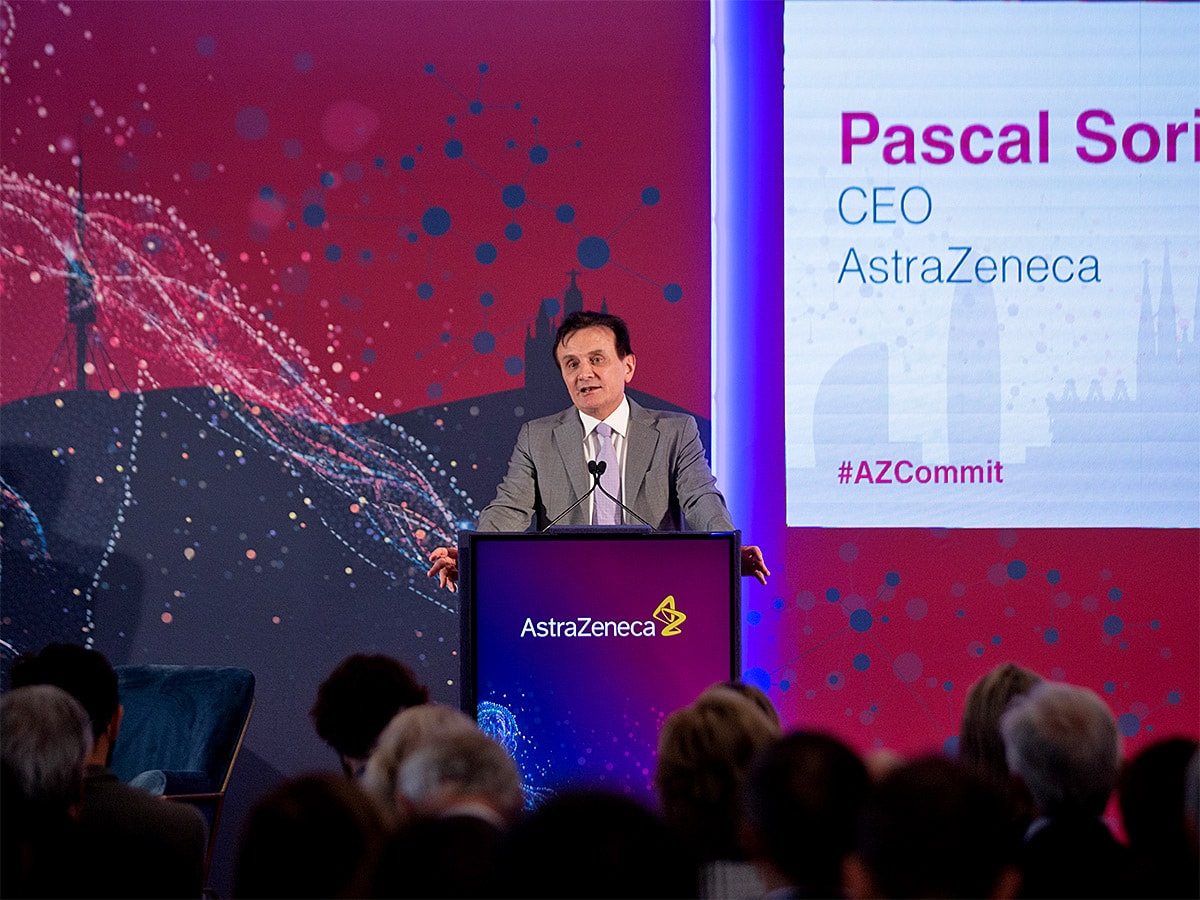AstraZeneca reached a 52-week high on 12 July, helped by the news that the company is to acquire TeneoTwo in a move that will boost its oncology portfolio. The stock has benefitted from the wider biotech rally and analysts are optimistic about growth in other areas, such as treatments for rare diseases.
UK drugmaker AstraZeneca [AZN.L] is buying privately held TeneoTwo in a deal worth up to $1.3bn. Just $100m will be paid upfront for the company and its experimental blood cancer treatment TNB-486. TeneoTwo’s shareholders could receive $805m if certain development milestones are met, with a further $360m to be paid out if commercial targets are reached.
Anas Younes, AstraZeneca’s senior vice president of haematology R&D, said in a statement that the deal would diversify its pipeline and could “potentially deepen clinical responses and improve patient outcomes”.
TNB-486 is still in the phase 1 clinical testing stage and it will be some years yet before the drug makes it to market, but the news has helped lift the AstraZeneca share price. The stock was up 3.3% since the news of the acquisition on 5 July, hitting a 52-week high of 11,238p on 12 July, helped by the broader biotech bounceback.
A boost to blood cancer treatments
Oncology is AstraZeneca’s bread and butter. In the first three months of the year, the unit brought in $3.644bn of revenue, accounting for a third of the company's total $11.39bn revenue. This was up 25% year-over-year thanks to a milestone payment, while oncology product sales were up 18%. CEO Pascal Soriot (pictured) described the performance as strong “despite a continuing Covid-19 impact on cancer diagnoses and treatment rates”.
Declines in legacy medicines were offset by better growth in new drugs including Calquence, an EU and FDA-approved treatment for adult patients with chronic lymphocytic leukaemia, a type of blood cancer. Though AstraZeneca didn’t disclose the exact volume of Calquence sales for Q1 2022, it said it had more than doubled from the year-ago quarter. Calquence sales totalled $1.238bn in FY21, accounting for 3% of total revenue, and up 136% from FY20.
If TeneoTwo’s TNB-486 treatment reaches the market, it stands to challenge existing T-cell engagers including Gilead’s [GILD] Tecartus and Amgen’s [AGMN] Blincyto. In layman terms, T-cell engagers are designed to redirect an immune system's T-cells – a type of white blood cell – to identify and kill off cancer cells.
What bringing TNB-486 to market will mean for AstraZeneca’s top line is unclear, but Amgen’s Blincyto, which works in a similar way to TNB-486, brought in $138m in Q1 2022, up 29% year-over-year. GlobalData is forecasting that annual Blincyto sales will peak at $771m in 2029, according to industry publication Pharmaceutical Technology.
AstraZeneca could potentially be in a position to deliver more robust sales growth. Younes said in his statement that TNB-486 has been “designed to optimise the therapeutic window of T-cell activation” without triggering dangerous side-effects.
“Amgen helped put bispecific T-cell engagers on the map when it received FDA approval for Blincyto in 2014, but the limitations of the molecule have left scope for competitors to overcome its first-mover advantage,” noted FierceBiotech last week.
Rare diseases unit promises strong growth
Beyond oncology. AstraZeneca’s rare diseases unit continues to go from strength to strength. In Q1 2022, Alexion, which it acquired for $39bn last July, contributed $1.7bn in sales.
Analysts at Hargreaves Lansdown wrote in April that the “potential growth runway” from Alexion will boost the board’s confidence to increase future shareholder returns.
“Alexion brings rare disease treatments into the [AstraZeneca] fold, a fundamentally attractive area of the pharmaceutical market. The combination of [AstraZeneca's] massive distribution network and Alexion's specialised drugs should bring about a powerful windfall in the coming years,” they wrote.
However, because the acquisition didn’t come cheap, net debt has been pushed to eye-watering levels. At the end of March, it stood at $25.2bn, up $895m from the end of December. “But this pales in comparison to the potential growth the combination offers,” noted the analysts.
The AstraZeneca share price has eight ‘buy’ ratings, according to analysts polled by MarketBeat. However, the consensus price target of 10,571p implies a 5.3% downside from the 12 July closing price.
Disclaimer Past performance is not a reliable indicator of future results.
CMC Markets is an execution-only service provider. The material (whether or not it states any opinions) is for general information purposes only, and does not take into account your personal circumstances or objectives. Nothing in this material is (or should be considered to be) financial, investment or other advice on which reliance should be placed. No opinion given in the material constitutes a recommendation by CMC Markets or the author that any particular investment, security, transaction or investment strategy is suitable for any specific person.
The material has not been prepared in accordance with legal requirements designed to promote the independence of investment research. Although we are not specifically prevented from dealing before providing this material, we do not seek to take advantage of the material prior to its dissemination.
CMC Markets does not endorse or offer opinion on the trading strategies used by the author. Their trading strategies do not guarantee any return and CMC Markets shall not be held responsible for any loss that you may incur, either directly or indirectly, arising from any investment based on any information contained herein.
*Tax treatment depends on individual circumstances and can change or may differ in a jurisdiction other than the UK.
Continue reading for FREE
- Includes free newsletter updates, unsubscribe anytime. Privacy policy





